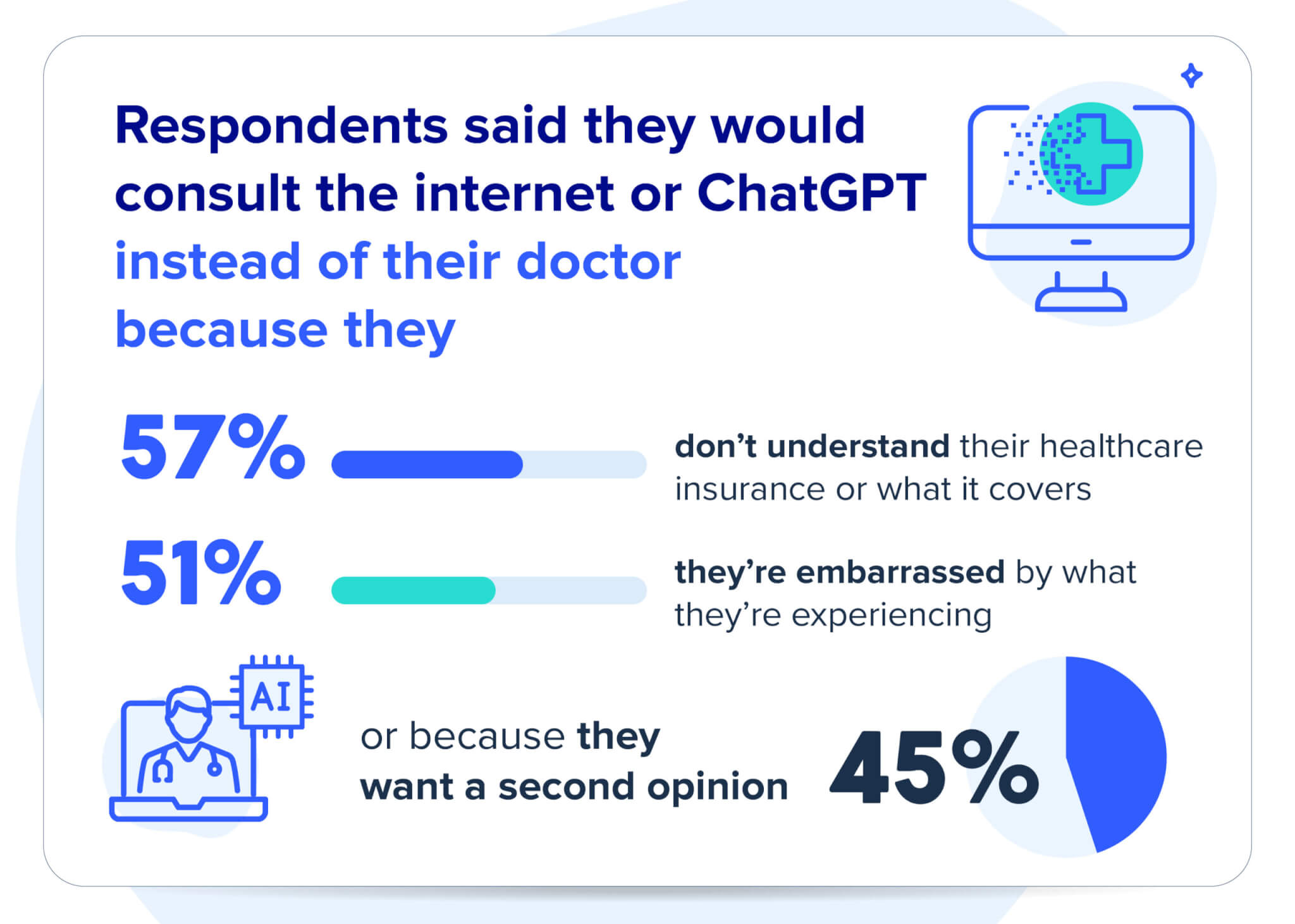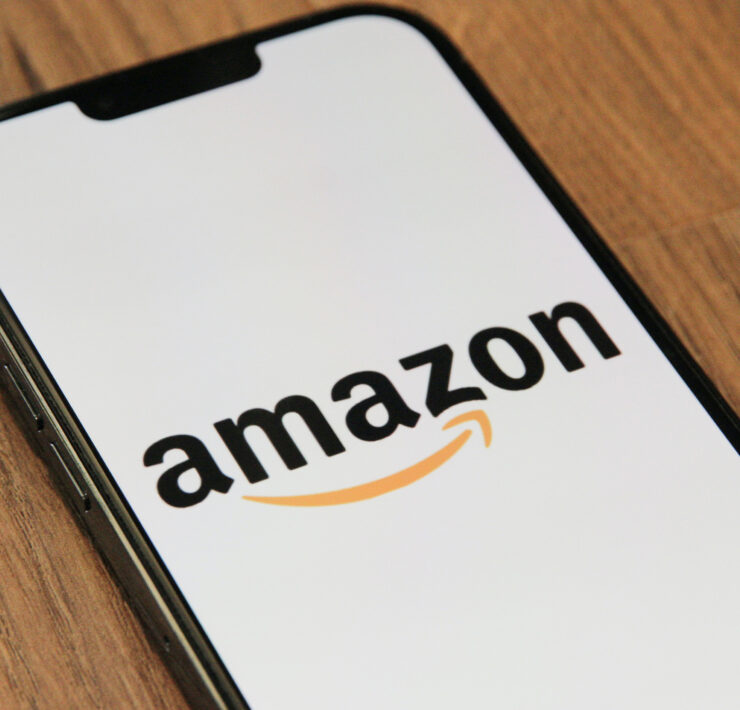
Americans’ trust in healthcare providers is lower than you may have realized.
A new survey revealed that nearly three-quarters (73%) believe they have a better understanding of their health than their own doctor, using sources like social media and health websites to get their information.
In fact, 52% shared they’ve begun using AI like ChatGPT for medical diagnosis. Of those, nearly a quarter (23%) said they would trust AI to diagnose them with medical conditions and chronic illnesses.
As it turns out, it appears Americans trust AI with a variety of health-related information. The survey found people would trust AI to recommend treatment plans for them (53%) and coordinate with pharmacies to fill prescriptions (47%). Additionally, respondents said they would trust AI with their sleeping patterns (53%), heart rate information (51%), blood pressure (42%) and fertility information (40%).
Americans are turning to the internet for a variety of reasons. Fifty-seven percent said it’s easier to ask social media or ChatGPT because they don’t understand what their healthcare insurance covers, while 51% said they’re embarrassed to speak in-person about what they’re experiencing. Forty-five percent used it because they wanted a “second opinion.”

Social media sites like Twitter/X or Reddit provide a space for people with similar illnesses to discuss not only their diagnoses but also their treatment plans. However, it should be noted that many factors go into a patient’s treatment plan. What works for one individual may not work for another.
It also doesn’t help that the internet is full of health misinformation, defined as “as a health-related claim that is based on anecdotal evidence, false or misleading owing to the lack of existing scientific knowledge.” A 2021 study found widespread online misinformation on a variety of health-related issues, including vaccines, smoking and drugs, cancer, dieting and more. Meaning even if people think they’re finding an little-known health secret, they could just be uncovering a totally uninformed opinion.
“Doctors and patients need to figure out together how AI can play the best role in healthcare journey,” said Lija Hogan, principal of enterprise research strategy at UserTesting. “This means that we have to figure out the right guardrails to ensure people are getting high-quality advice in the right contexts and how to connect patients to providers. The growing prevalence of healthcare deserts or even just ordinary lack of access in America means that AI will be incorporated into the healthcare journey to provide care at the scale that we need as the country ages.”






















